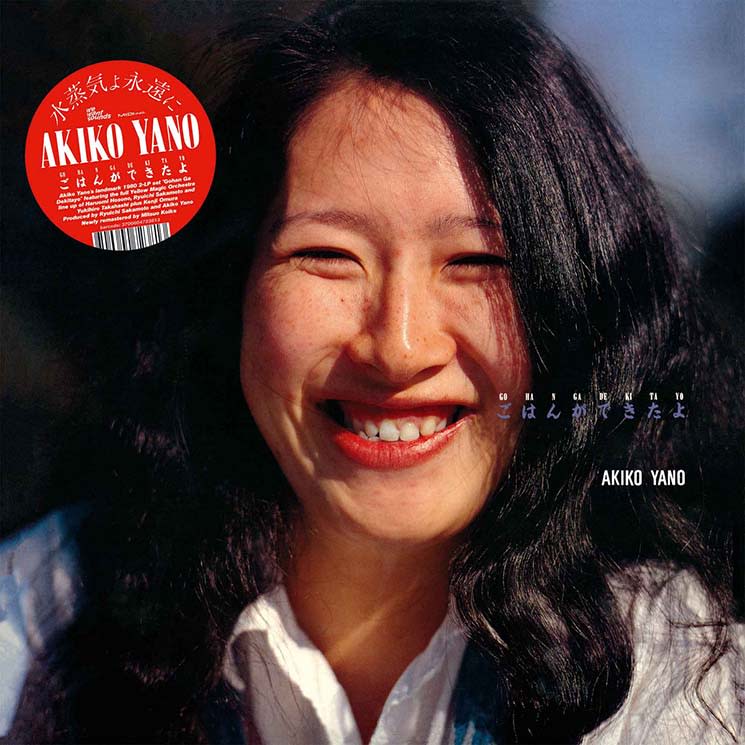Originally released in 1980, Akiko Yano's double LP Gohan Ga Dekitayo comes from a busy period of her career: she was actively collaborating and touring with Yellow Magic Orchestra and they backed her on this record.
Arguably, her standout performance is on "Coloured Water," where Yano's voice is tender and fragile, and she accompanies herself on an electric piano. The light touches of percussion and strings accent this one well, letting Yano's performance shine. Similarly, "High Time" uses a minimal backing to good effect. And almost hidden on record's back end, "Gokigen Wanisan" mixes two acoustic pianos with splashes of synth and a compelling, almost Latin groove.
Overall, however, the record feels overstuffed. Several songs pass the six-minute mark, and there's a feeling of filler, despite only having 14 tracks. The arrangements and performances only occasionally hit the same highs that were all over earlier Yano records like Japanese Girl or Iroha Ni Konpeitou. Without careful listening, songs blend together, and there's very little to distinguish them.
In sum, Gohan Ga Dekitayo feels like Yano trying to go more mainstream. It's decidedly less quirky, and more focused on slower, poppier songs and melodies, and it only works occasionally. There are a few missteps, and a few performances drag on, but fans of her or of YMO will likely find something to chew on.
(We Want Sounds)Arguably, her standout performance is on "Coloured Water," where Yano's voice is tender and fragile, and she accompanies herself on an electric piano. The light touches of percussion and strings accent this one well, letting Yano's performance shine. Similarly, "High Time" uses a minimal backing to good effect. And almost hidden on record's back end, "Gokigen Wanisan" mixes two acoustic pianos with splashes of synth and a compelling, almost Latin groove.
Overall, however, the record feels overstuffed. Several songs pass the six-minute mark, and there's a feeling of filler, despite only having 14 tracks. The arrangements and performances only occasionally hit the same highs that were all over earlier Yano records like Japanese Girl or Iroha Ni Konpeitou. Without careful listening, songs blend together, and there's very little to distinguish them.
In sum, Gohan Ga Dekitayo feels like Yano trying to go more mainstream. It's decidedly less quirky, and more focused on slower, poppier songs and melodies, and it only works occasionally. There are a few missteps, and a few performances drag on, but fans of her or of YMO will likely find something to chew on.




